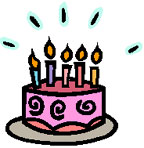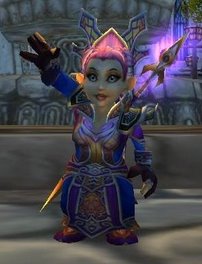When the
Left Behind series came out, I read the first few books to see what the hype was all about. I don't agree with the theology, and the relationship between worldly, experienced journalist Buck and naive college student Hattie was slightly creepy. But even more than that, I found it boring. Oh, no...the Antichrist has taken over the UN...oh, no...the world is being destroyed...It doesn't matter how many horrible, earth-shaking events an author introduces into a narrative; if the author (or authors) are lousy writers, it's going to be a boring book. So I stopped reading the series, and didn't think much more about it.
Now, Left Behind Games has come out with a video game version of the series, entitled
Left Behind: Eternal Forces. Normally, I would link the game's official webpage for you, but I am really quite upset with this game and its implications, so I'm not going to. If you want to buy it, you have to find it yourself. So there.
Why am I so upset? Because this game purports to be a
Christian video game, when in reality, the principles and take-away messages of the game are anything but.
Here are some of the biggest problems with
Left Behind: Eternal Forces:
1. You kill everyone who doesn't convert to Christianity, or even your particular version of Christianity. Muslims, gone. Atheists, goodbye. Lutherans, Catholics, sorry.
2. Forget women's rights. You can convert men and train them to be builders or soldiers, but women...well, women can only be nurses or singers.
3. Peace activists and non-Christian doctors and nurses--well, they're certainly demonic forces, and should be killed immediately.
4. Also, because the Antichrist is working to unite all governments in an effort for world peace, the game suggests that those striving for peace in the real world are agents of evil.
Quite frankly, this isn't the kind of game that I'd want to introduce someone to as a Christian video game. And
numerous Christian organizations agree, calling for a boycott and a recall of this game because it promotes un-Christian values.
What are people to do, then, who are looking for a Christian video game? I would suggest games that involve quests that teach the consequences of your actions, or pose some sort of moral dilemma that forces the player to think about what's right and wrong. An article in the February 2007 issue of PC gamer entitled "The Quest for a Decent Chore" describes how the
Ultima series transformed quests from simply "kill this" or "deliver that"; it "injected moral depth into quest goals by requiring you to act virtuously in order to succeed" (88). Now, this isn't Christianity
per se, but I find this sort of moral humanism much closer to Christianity than killing people simply because they don't believe the way you do.
Now, my personal favorite
, World of Warcraft, doesn't have this sort of moral depth in quests. When I first started playing the game, I was concerned when a quest asked me to
steal barrels of beer from an inn that had just befriended me. I was hesitant about doing this quest, until I learned that all these quests were scripted, everyone did the same ones, and there was no choice involved.
World of Warcraft, however, does provide players the opportunity to interact with other players, and therefore, is another way to "love thy neighbor." Plenty of people need help--directions on where to go for a quest, help killing a monster that is too much for them, maybe even just someone to talk to. Because the game is virtual, players are given the opportunity to recreate themselves, and the results are often very interesting. These questions of identity--why did I blow off that player who asked me for help? for example--can really make you think about who you are, and challenge you in moral and spiritual ways that a game like
Left Behind will never do.

 I'm just very impressed by the way the bottle does actually appear to be in 3 dimensions. If you're interested in seeing more of his work, the link above goes to his website, where more of his sidewalk drawings are on display.
I'm just very impressed by the way the bottle does actually appear to be in 3 dimensions. If you're interested in seeing more of his work, the link above goes to his website, where more of his sidewalk drawings are on display.









